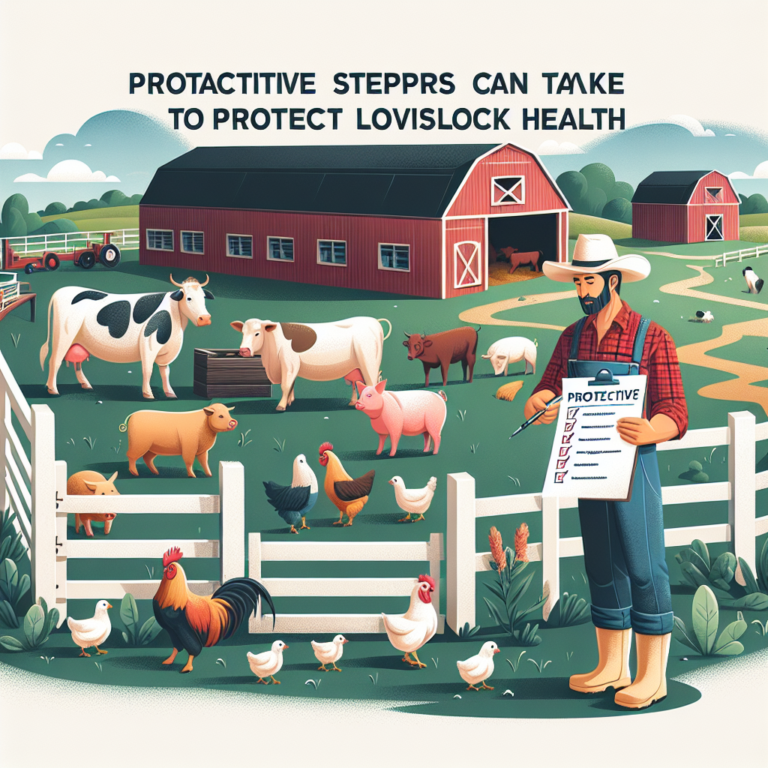Ensuring the health and well-being of livestock is crucial for farmers to maintain a successful and sustainable operation. By taking proactive steps to protect livestock health, farmers can prevent illness, improve productivity, and ultimately increase their profits. There are several strategies that farmers can implement to safeguard the health of their animals.
One of the most important steps that farmers can take to protect livestock health is to practice good biosecurity measures. This includes limiting the exposure of livestock to outside pathogens by controlling who enters the farm, quarantining new animals before introducing them to the existing herd, and regularly cleaning and disinfecting equipment and facilities. By keeping a clean and secure environment, farmers can reduce the risk of disease outbreaks among their livestock.
Another proactive measure that farmers can take is to provide proper nutrition and access to clean water for their animals. A balanced diet that meets the nutritional needs of each species of livestock is essential for maintaining their health and immune system. Additionally, ensuring that animals have access to clean water at all times will help prevent dehydration and keep them hydrated, which is crucial for their overall well-being.
Regular veterinary care is also essential for protecting the health of livestock. Farmers should work closely with their veterinarian to develop a herd health plan that includes vaccinations, parasite control, and routine health check-ups. Early detection and treatment of any health issues can prevent them from spreading and becoming more serious, ultimately saving farmers time and money in the long run.
Monitoring the behavior and condition of livestock is another key proactive step that farmers can take to protect their health. By regularly observing their animals for signs of illness or distress, farmers can quickly identify and address any health concerns before they escalate. This includes monitoring feeding and water intake, body condition, and activity level to ensure that animals are healthy and thriving.
In conclusion, protecting the health of livestock is essential for the success of any farming operation. By implementing proactive measures such as practicing good biosecurity, providing proper nutrition and water, regular veterinary care, and monitoring animal behavior, farmers can significantly reduce the risk of disease outbreaks and ensure the well-being of their livestock. Taking these steps will not only benefit the health of the animals but also improve the overall productivity and profitability of the farm.
